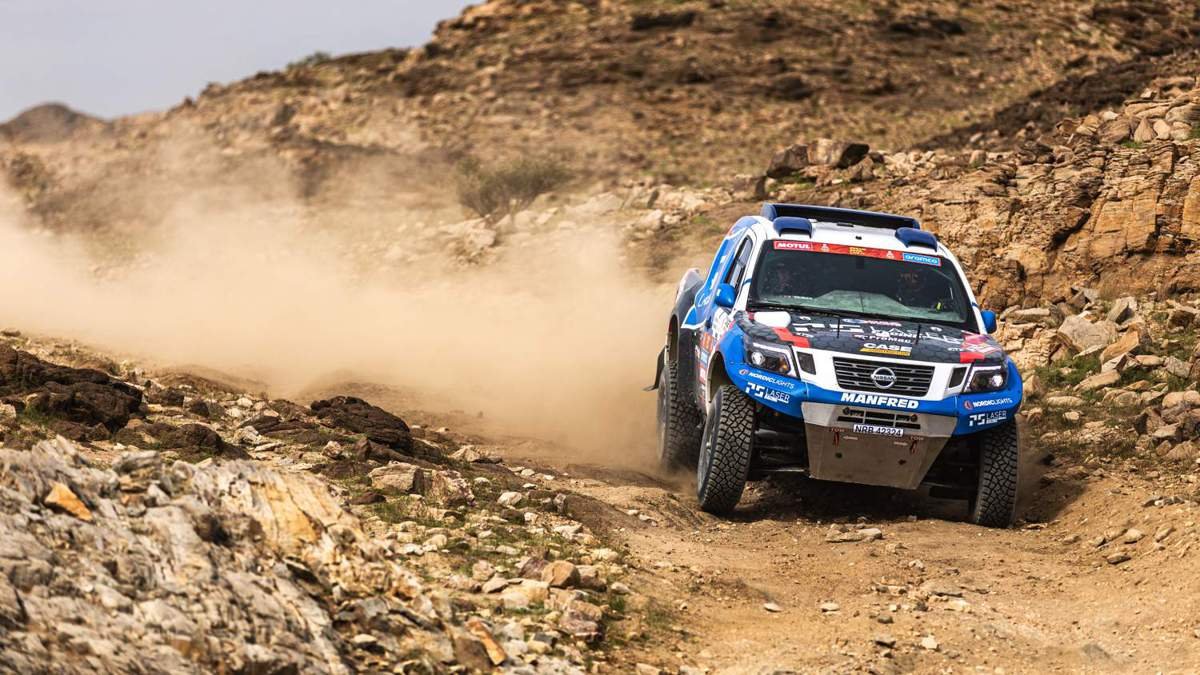The other day we did the Classic entries, today we’re doing the participants in the primary event. This is much tougher and the real show. Recent years have seen declining numbers of entrants using Nissans but Redlined Motoring has really brought the platform back to being a major player.
Unfortunately a number of Nissan entries that were expected to be present this year, did not show. Given that it appears as if the entire Turkmenistan team of Patrols did not attend and there had been a number of other “Russian-related” teams that did not attend, I suspect there was a bit of a kerfuffle between the ASO and this group which unfortunately resulted in them not participating.
That said…the Nissan results are as follows and are extremely impressive with all four of the Redline built Navara’s crossing the finish with Daniel Schroeder being the foremost among them. Despite this being one of the older Navara’s produced by Redline, Schroeder has lots of prior experience with this being his 7th Dakar and second behind the wheel and finishing 36th last year. In three prior Dakar’s he was codriver for his father and also has two Dakar finishes on a bike in 2011 and 2012.
#235 Daniel Schroeder, Nissan Navara VK50—56th of 123
#245 Thomas Bell, Nissan Navara VK56—72nd of 123
#249 Mohamad Altwijri, Nissan Navara—DNS
#259 Ibrahim Almuhna, Nissan Patrol—DNF on Stage 6
#263 Ronald Van Loon, Nissan Navara VK50—106th of 123
#266 Dave Klaassen, Nissan Navara VK56—80th of 123
#271 Gurbanberdi Danatarow, Nissan Patrol—DNS
#272 Hydyrberdi Abdurahmanov, Nissan Patrol—DNS




































